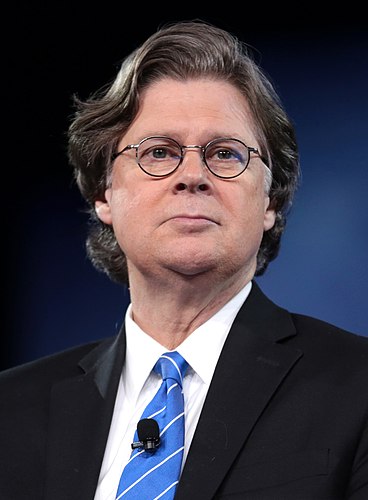1.
In the end, Tuesday's vote represented a repudiation of virtually every notion Democrats embraced in recent weeks as they tried to disregard the growing evidence that they were headed for a historic defeat. Now, the vote is in, and the voters' message can no longer be discounted.
Byron York
2.
The Obama damage is two-fold. First, his success relied on a coalition that likely will not survive, or at least survive at full strength, without Obama himself on the ticket. Secondly, Obama drove a significant portion of white voters away from the Democratic Party.
Byron York
3.
Voters replaced Democratic senators with Republicans in Arkansas, Colorado, Iowa, North Carolina, Montana, South Dakota, West Virginia, and likely in Alaska, and appear on track to do so in a runoff next month in Louisiana. At the same time, voters kept Republicans in GOP seats in heavily contested races in Georgia, Kansas, and Kentucky. That is at least ten, and as many as a dozen, tough races, without a single Republican seat changing hands. Tuesday's voting was a wave alright - a very anti-Democratic wave.
Byron York
4.
'I haven't used the veto pen very often since I've been in office,' Obama told NPR. 'Now, I suspect there are going to be some times where I've got to pull that pen out. And I'm going to defend gains that we've made in healthcare; I'm going to defend gains that we've made on the environment and clean air and clean water.'
Byron York
5.
In the end, no single group will mean defeat for the Democrat and victory for the Republican in 2016. But President Obama's troubling legacy - a weakened coalition and growing ranks of alienated white voters - could mean a serious post-presidential hangover for Democrats.
Byron York
6.
As Democratic losses mounted in Senate races across the country on election night, some liberal commentators clung to the idea that dissatisfied voters were sending a generally anti-incumbent message, and not specifically repudiating Democratic officeholders. But the facts of the election just don't support that story.
Byron York
7.
Now that the 2014 elections are over and national politics is all about 2016, Democrats have good reason to worry that, for all his success at the polls, President Obama will leave his party with a toxic legacy.
Byron York
8.
A remarkably revealing portrait.
Byron York
9.
That does almost nothing to address voters' concerns, which remain a potent factor in the campaign. The bottom line is, there's a reason Republicans keep pushing so hard against Obamacare: So far, it's working.
Byron York
10.
Polls suggest that more and more, opposition to Obamacare is based on voters' personal experience, and not just on what they have heard or read about the law.
Byron York
11.
If one cannot imagine Obama saying such a thing — well, he didn't.
Byron York
12.
So Republican candidates bash Obamacare and move up in the polls. Given that public opinion remains firmly against the health care law - as it has been for years - that's not a shock. Democratic beliefs to the contrary are probably wishful thinking.
Byron York
13.
Some Democrats and their advocates in the press believe Obamacare, a year into implementation, is no longer much of a factor in the midterm elections. But no one has told Republican candidates, who are still pounding away at the Affordable Care Act on the stump. And no one has told voters, especially those in states with closely contested Senate races, who regularly place it among the top issues of the campaign.
Byron York
14.
Perhaps the most striking thing about the 2015 State of the Union address was not the president at the podium but the audience in the seats. The joint session of Congress listening to President Obama Tuesday night included 83 fewer Democrats than the group that heard Obama's first address in 2009 - 69 fewer Democrats in the House and 14 fewer in the Senate. The scene in the House Chamber was a graphic reminder of the terrible toll the Obama years have taken on Capitol Hill Democrats.
Byron York

